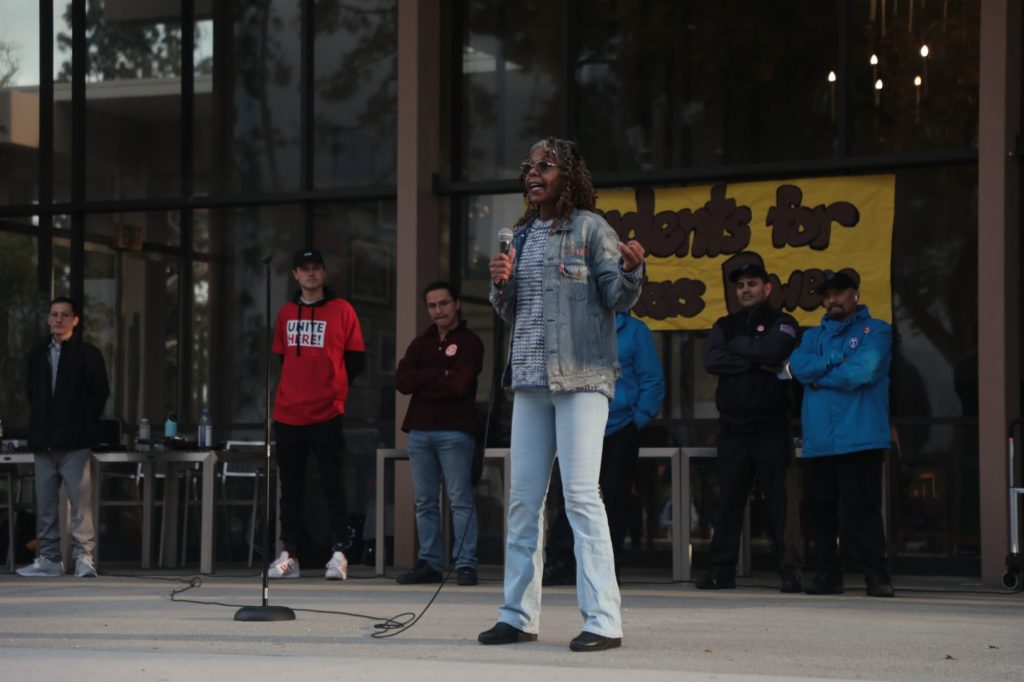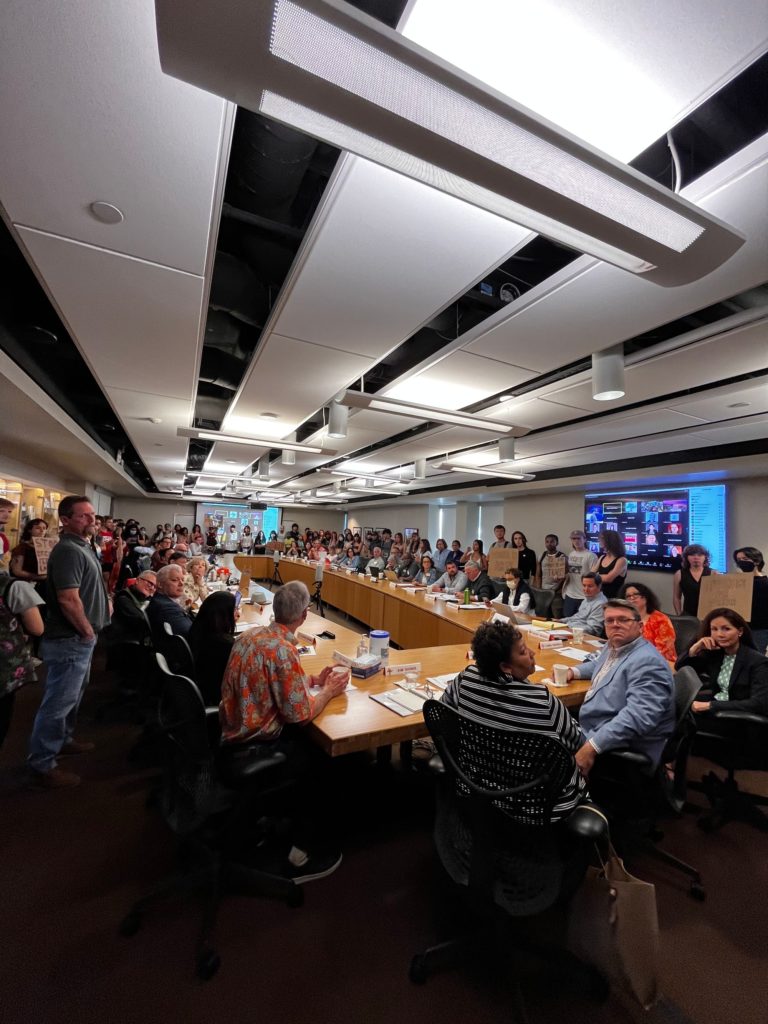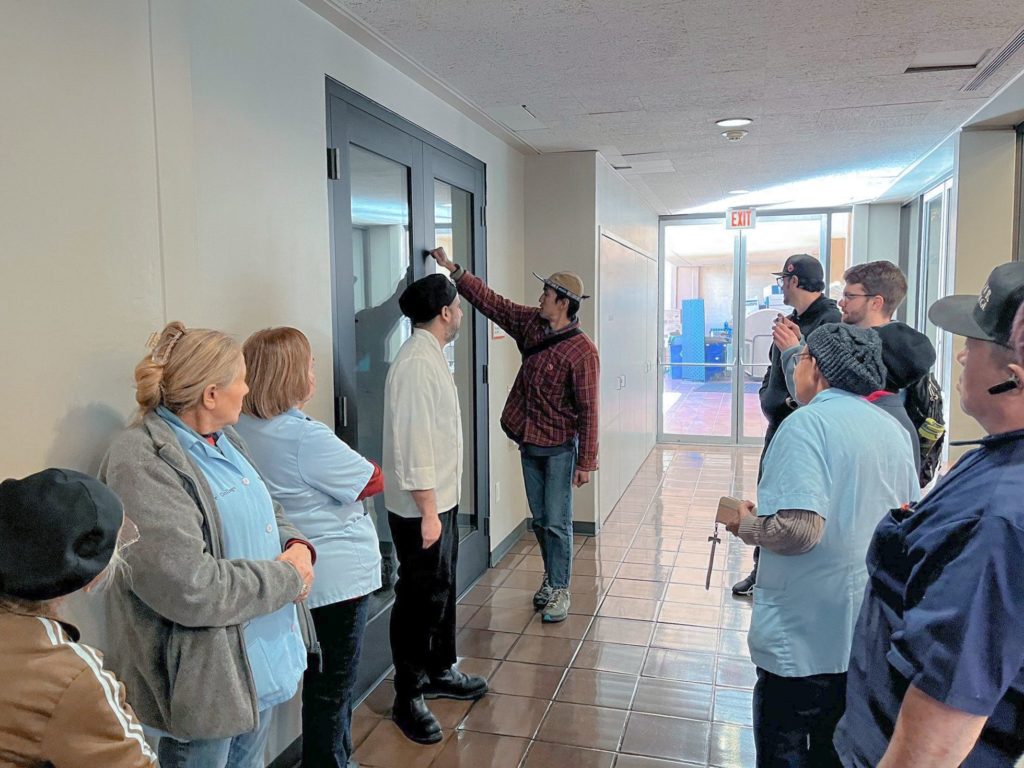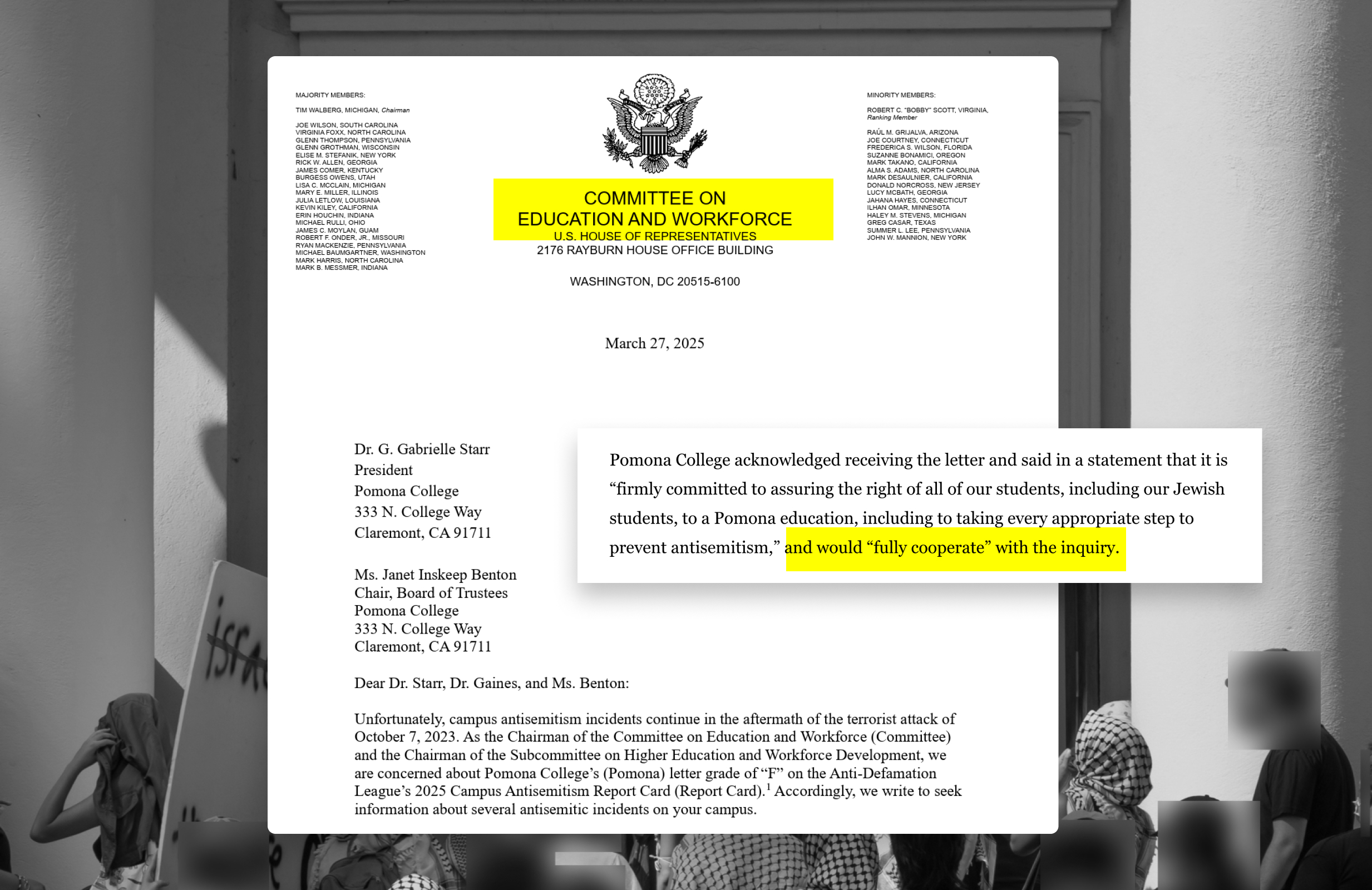
December 3, 2023
The contract increased hourly pay by as much as $7.50 and also included increased insurance benefits.

Last month, dining and facilities workers at Pitzer College won their first union contract, after around six months of negotiations and a year after the workers won recognition of UNITE HERE! Local 11 as their bargaining representative.
The contract went into effect on September 4, with hourly pay increasing by $7.50 — matching the contract Pomona dining workers won after months of negotiations and a strike last fall — for all employees in Dining Services, Maintenance and Construction, and Facilities by 2026, along with other benefits. Employees will also be covered for 95% of health, dental, and vision employee insurance.
The contract will remain in effect until June 30, 2026, after which negotiations for a second contract will begin.
What the new contract entails
The contract provides a clear delineation of various employee classifications, stipulates working hours for different categories of employees, and establishes overtime pay regulations for those exceeding daily or weekly hours. According to Tommy Morales, a painter and a shop steward at Pitzer, the contract ensures workers have control over their schedules.
“[Before the contract,] we didn’t get to decide what hours we work. And if we don’t work or we decide not to work, then they’re free to do whatever they want with our schedule,” he shared.
By clearly outlining terms and conditions of employment, the contract allows workers to have a say in shaping their employment conditions, instead of allowing Pitzer complete control over these conditions, according to Morales.

“[Before the contract], there was no agreement between the workers and management. It was just what management says goes.”
Tommy Morales, Pitzer shop steward
“[Before the contract], there was no agreement between the workers and management. It was just what management says goes, if you got fired, then you got fired.” Morales said. “But now they have to give us reason. There has to be a lot before they can just get rid of someone they don’t like.”
Prior to the union’s certification, workers were paid as little as $17 an hour. The new contract stipulates that, each year from 2023 to 2026, all employees will receive annual wage increases ranging from $0.75 to $2.50 an hour. Additionally, there will be start rate increases for new hires for all classifications.
In addition to wage increases, the contract outlines several other benefits that Pitzer will provide to employees. These benefits include insurance plans, retirement plans, paid holidays, paid sick leave, and vacation benefits.
Aside from gaining influence over their job conditions from the contract, workers at Pitzer are excited about new benefits. Jose Ochoa, a McConnell dining hall worker and shop steward explained the limits of the initial insurance and wage plan:
“Before the contract, a family plan was around 500 dollars and people were getting paid around seventeen, eighteen dollars an hour,” Ochoa explains.
Garcia adds that, “I had a coworker who was paying close to $700 a month in health insurance…I believe now biweekly she’ll be looking at $40.”
These changes will make a significant difference in her life, and the lives of all other Pitzer employees, but they were not easily won.
Contract negotiations
Contract negotiations lasted around 6 months. According to Morales, due to Pitzer’s failure to honor the negotiations during work hours, workers had to take part in negotiations on their personal time.
“…it was difficult for us workers to even get to the negotiation tables. We missed out on money and family time.
Tommy Morales
“If they [were] negotiating, [Pitzer management said] if you’re not here, you don’t get paid. So we had to use sick time… So yes, it was difficult for us workers to even get to the negotiation tables. And we did lose money. We missed out on money and family time.”
Morales also revealed that Pitzer management did not invest adequate effort in the negotiation process, causing the negotiations to be prolonged.
“Pitzer didn’t even have a group of managers there. They didn’t even have enough respect for us… They only had one person from HR, and a lawyer [at negotiations], and they were usually there on Zoom. That’s what the negotiations were like. It was tough.”

Beyond showing a lack of effort in negotiations, Pitzer management also resisted workers’ efforts to negotiate the contract, according to Morales.
“Pitzer was still doing things here and there to hurt us. We had people get fired. The rules were changing in the kitchen… And they were hiring new people, who didn’t want anything to do with the union.”
Since the union’s formation in August 2022, Pitzer workers have filed three ULPs (Unfair Labor Practice) with the National Labor Relations Board alleging that Pitzer College and BAMCO had committed coercive actions and unlawfully terminated three employees as retaliation for union organizing.
Support from CSWA
Despite the challenges presented by management during negotiations, Morales highlighted that CSWA offered great support by instructing workers on how to effectively organize and carry out delegations with management.
“If it wasn’t for the support of CSWA, then it would have been, it wouldn’t have been possible to get us unionized as quickly.”

Francisco Villaseñor, a member of CSWA’s leadership, described the role of student organizing in assisting labor actions. Villaseñor described the students’ role as auxiliary, able to build collective awareness and expose the antagonisms that Pitzer committed against its workers.
“As Pitzer was engaging in active anti-labor rhetoric and anti-union campaigns, students had the ability to not only inform one another…but hold a magnifying glass up to what Pitzer was doing…”
Francisco Villaseñor, CSWA organizer
“As Pitzer was engaging in active anti-labor rhetoric and anti-union campaigns, students had the ability to not only inform one another about what was happening on campus, but also hold a magnifying glass up to what Pitzer was doing to inform the broader 5C community.”
The contract offers a different future for workers
Despite the challenges encountered during contract negotiations, workers expressed how the contract has significantly brought them and their families major benefits.
Morales, who is currently on leave for a knee injury, looks forward to wage raises upon his return to work, and having less financial concerns thanks to the contract’s improved insurance plan.
“[I look forward to] saving a lot of money on insurance, because I have a big family. That was costing me an easy $500 a month, just for insurance,” Morales said. “And [now] that’s not something I have to worry so much about. Now, it’s a fraction of that price. That’s because of the contract. That’s because of months of negotiation.”
Dining hall workers used to be hired for twelve months at a time, but starting in 2019 they started to only be hired for ten, leaving them unemployed and financially insecure for the two months of summer. Ochoa and Garcia were relatively unaffected by this change as veteran employees, but they nonetheless raised it as a point of future improvement.
Garcia summarized both of their current sentiments. “With it only being our first contract, we’ve achieved so much. But I think there’s always room for growth. We can always do better in our next contract.”
With a precedent of contract negotiation finally set, there is nowhere to go but up. “Pitzer fought back. They did. But they lost. And we won! And now we are getting these great benefits.”

Ochoa and Garcia both emphasize the financial stress employees were constantly under before the contract was in place, alongside a difficult workplace culture that made unionization crucial.
Of course, the current contract is not the end of the road for labor organizing. Ochoa and Garcia voiced the same future goals, of full college tuition for the children of staff as opposed to the 40% of tuition covered now, and an end to ten month hiring periods.
“Before,” Garcia explains, “we couldn’t say certain things without repercussions or some kind of backlash.” She describes an employee meeting in March of 2023 with a previous manager, where workers were asked if they had any questions or problems they wished to raise.
However, when she raised an issue — the need for a new fridge — the manager shut her down, telling her that that setting was not the time or place for her concern. “She looked at me with so much anger and disgust…in that moment I felt so tiny I literally wanted to just shrivel up in my chair,” Garcia recalls.
Garcia believes the workplace environment has already improved under the new contract, and should continue to do so. “Now [the culture] is better. In all honesty, before, we didn’t have ‘protection’ or the right to say certain things. So it’s changed a lot, drastically.”
It took a while for some of her coworkers to let go of their fear of getting in trouble, Garcia explains, but now that they’re “out of that scare zone” as she labels it, their potential for empowerment is huge.
“We can move mountains together.”
Nhi Nguyen PO’26 writes for Undercurrents. She likes journalism because it allows her to work from bed.
Sophie Myers PZ ’27 (she/her pronouns) is a student at Pitzer College interested in the various Leftist movements at the Claremont Colleges and their intersections. She’s especially interested in the 5C Divest Movement and other climate activism, efforts to radically transform our prison system, and how students at the 5Cs can most effectively create the change they wish to see in their communities.


Palestine

Palestine

Palestine

Undercurrents reports on labor, Palestine liberation, prison abolition and other community organizing at and around the Claremont Colleges.

Issue 1 / Spring 2023
Setting the Standard
How Pomona workers won a historic $25 minimum wage; a new union in Claremont; Tony Hoang on organizing
Read issue 1